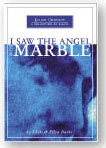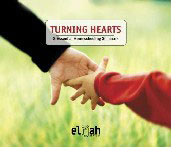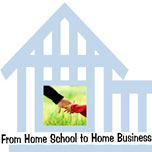You've Got to Find What You Love
Read past issues of the
e-journal HERE>> Sign up below.
by Steven Jobs
[This issue of the newsletter was supposed to be about Developing an Individualized Educational Profile for each child as a guide through the home schooling years. But as I was reading various articles on the internet, I came across Steven Jobs' commencement address to the 2005 graduating class of Stanford University.
I've always been a huge fan of Steven Jobs (founder of Apple Computer and Pixar Studios) as well as a fan of really good commencement speeches (think Baz Lehrman's "Sunscreen" commencement address.) I think I like Steven Jobs' life story because it shows an incredible creativity and adaptation to the ups and downs of life that I think any of us can emulate.
Anyway, I decided to run a portion of Steven's commencement address because it so inspired me and I thought you would appreciate it. You can read the whole address HERE. It is well worth reading.
Next week's newsletter will cover Developing an Individualized Educational Profile for each of your children.]
When I was 17, I read a quote that went something like: "If you live each day as if it was your last, someday you'll most certainly be right." It made an impression on me, and since then, for the past 33 years, I have looked in the mirror every morning and asked myself: "If today were the last day of my life, would I want to do what I am about to do today?" And whenever the answer has been "No" for too many days in a row, I know I need to change something.
Remembering that I'll be dead soon is the most important tool I've ever encountered to help me make the big choices in life. Because almost everything — all external expectations, all pride, all fear of embarrassment or failure - these things just fall away in the face of death, leaving only what is truly important. Remembering that you are going to die is the best way I know to avoid the trap of thinking you have something to lose. You are already naked. There is no reason not to follow your heart.
About a year ago I was diagnosed with cancer. I had a scan at 7:30 in the morning, and it clearly showed a tumor on my pancreas. I didn't even know what a pancreas was. The doctors told me this was almost certainly a type of cancer that is incurable, and that I should expect to live no longer than three to six months. My doctor advised me to go home and get my affairs in order, which is doctor's code for prepare to die. It means to try to tell your kids everything you thought you'd have the next 10 years to tell them in just a few months. It means to make sure everything is buttoned up so that it will be as easy as possible for your family. It means to say your goodbyes.
I lived with that diagnosis all day. Later that evening I had a biopsy, where they stuck an endoscope down my throat, through my stomach and into my intestines, put a needle into my pancreas and got a few cells from the tumor. I was sedated, but my wife, who was there, told me that when they viewed the cells under a microscope the doctors started crying because it turned out to be a very rare form of pancreatic cancer that is curable with surgery. I had the surgery and I'm fine now.
This was the closest I've been to facing death, and I hope its the closest I get for a few more decades. Having lived through it, I can now say this to you with a bit more certainty than when death was a useful but purely intellectual concept:
No one wants to die. Even people who want to go to heaven don't want to die to get there. And yet death is the destination we all share. No one has ever escaped it. And that is as it should be, because Death is very likely the single best invention of Life. It is Life's change agent. It clears out the old to make way for the new. Right now the new is you, but someday not too long from now, you will gradually become the old and be cleared away. Sorry to be so dramatic, but it is quite true.
Your time is limited, so don't waste it living someone else's life. Don't be trapped by dogma — which is living with the results of other people's thinking. Don't let the noise of others' opinions drown out your own inner voice. And most important, have the courage to follow your heart and intuition. They somehow already know what you truly want to become. Everything else is secondary.
When I was young, there was an amazing publication called The Whole Earth Catalog, which was one of the bibles of my generation. It was created by a fellow named Stewart Brand not far from here in Menlo Park, and he brought it to life with his poetic touch. This was in the late 1960's, before personal computers and desktop publishing, so it was all made with typewriters, scissors, and polaroid cameras. It was sort of like Google in paperback form, 35 years before Google came along: it was idealistic, and overflowing with neat tools and great notions.
Stewart and his team put out several issues of The Whole Earth Catalog, and then when it had run its course, they put out a final issue. It was the mid-1970s, and I was your age. On the back cover of their final issue was a photograph of an early morning country road, the kind you might find yourself hitchhiking on if you were so adventurous. Beneath it were the words: "Stay Hungry. Stay Foolish." It was their farewell message as they signed off. Stay Hungry. Stay Foolish. And I have always wished that for myself. And now, I wish that for you.
Stay Hungry. Stay Foolish.
You can read Steven Job's entire commencement address HERE
Next week's newsletter will cover Developing an Individualized Educational Profile for each of your children.
Top Resources
The Seven Habits of Highly Effective People by Stephen Covey. Covey’s ideas are so widely circulated that if you don’t read his book, you’ll be at a disadvantage when people start talking about concepts from the book like “win-win” and “synergy.” But that’s not the real reason to read his book. The real reason is that it is one of the absolute greatest distillations of the concepts that it takes to move toward success and effectiveness in every area of life, including relationships.
The Seven Habits of Highly Effective Families by Stephen Covey. Covey defines success in relationships as "a beautiful family culture" and encourages every parent to do some soul searching to become aware as to what really is priority in life. Then, he suggests we put "first things first." Most of us really want to have family come first, but doing that is often easier said than done. In this book, Covey clearly points out the essentials...such as establishing effective communication lines through family meetings and one-on-one talks with the kids. One of the most transforming things in this book is his description of how to create a family mission statement. This becomes a guiding principle of family life and was invaluable to our familyl as the children were growing up.
How to Really Love Your Child. In this extrordinary book, Dr Ross Campbell helps parents manifest love toward their children in all situations of child-rearing through the teen years. Many parents do not know how to express affection in ways that make a chid feel loved. This book details practical demonstrations of that are meaningful to children.
How to Really Love Your Teenager is specifically addressed to parents of teens. Dr. Ross Campbell believes that parents experience their greatest difficulties at this stage because they are unable to relate to the moodiness and self-identity issues that teens go through. So parents often harbor misconceptions and face disappointment in their relationships with their teens. This book offers ideas to help you communicate unconditional love, handle teenage anger . . . as well as your own, deal with adolescent depression and help your teenager grow spiritually and intellectually.
The Five Love Languages. Unhappiness in a relationship often has a root cause: we speak different love languages. Each of us has a "love language" of certain actions and words that when others use them it makes us feel loved. Do you feel most loved when those you love spend quality time with you, give you gifts, speak words of affirmation, perform acts of service, or when they touch you affectionately? This is a very thought-provoking and helpful book because it has given us greater understanding of how to show we care in a way that is most meaningful to the other person.
The Five Love Languages of Children and The Five Love Languages of Teenagers focus on finding the form of love most meaningful to each of your children and how to express love in ways that they can truly appreciate and receive it.
The Blessing. In the Bible, the parents' blessing was especially powerful, often defining the course of a child's life. This book discusses how a parent's words can shape identity for good or evil, and how what we speak over our children can hlep them become who God means them to be. It also shares the heartache a lack of parental blessing can bring, and how we can confer a blessing upon our children.
Emotional Intelligence and How to Raise a Child With a High EQ are the seminal works on understanding emotional intelligence and how to develop it in your children (and yourself).
What is a Family.
This is one of the best books we have ever read. We re-read it periodically, and each time are brought to tears—tears of longing because it so perfectly expresses what we want our family to be like. Edith Schaeffer shares how the family is meant to be the birthplace of creativity: a center for the formation of relationships: a museum of wonderful memories that provide a hedge of protection around our children; an educational control; a perpetual relay of truth; and more.
For the Family’s Sake. Edith’s daughter Susan Schaeffer Macaulay takes up where her mother left off. By showing the power a godly home can have in a child’s life, she challenges every one of us to treasure the precious time we have at home with our children.
For the Children’s Sake.
Susan Schaeffer Macaulay continues to follow in her mother Edith Schaeffer’s footsteps, and in this book describes how to develop relationships filled with grace, beauty, and love. She views education as “the diet that opens doors for each child to build a relationship with God, other persons, and the universe.”
A Simple Choice by Deborah Taylor-Hough. We consider all of the resources above absolutely essential, because they each take a different approach to discovering the things that really matter in life. Read this book first, because it touches lightly on many topics the other resources tackle in detail. It begins by helping you develop a family mission statement, then leads you through practical ways to live out your priorities in your finances, in your home management, and in your family life.
Margin by Richard Swenson.
We are convinced that home schooling succeeds or fails depending on the “margin” we build into our lives. Margin is the space that should exist between us and our financial, emotional, spiritual, and physical limits. It is the time to build relationships, to reflect on life, to live deliberately and unhurriedly. It is the money to invest in important things. It is the emotional reserve to love, laugh, and relax. It is the time to do what you value most. This book discusses how we crowd margin out of our lives and what we can do to regain it.
The Overload Syndrome by Richard Swenson picks up where Margin leaves off, explaining the pressures of our culture that are taking a toll on all that we are and do. Written in the form of “prescriptions” to counteract the life-draining, health-damaging effects of overload, this book can truly restore health, save marriages, reconcile children, and bring back the joy of living.
Restoring Margin
to Overloaded Lives is a workbook that helps you examine your life to find out where your “overloads” are; how you seem to keep accumulating them; and what you can do to eliminate them.
Discover Your Children’s Gifts by Don & Katie Fortune.
Part of training our children is discovering who God created them to be and the “works” He created them to do. This book looks at the spiritual gifts latent in each child and explains how parents can recognize and best develop these gifts for useful service. Based on Proverbs 22:6 and Romans 12: 6 - 8, it discusses how gifting affects communication, career possibilities, and more.
Discover Your Child’s Learning Style by Mariaemma Willis and Victoria Kindle-Hodson.
One mother wrote, “This is the most important book I have read in six years of homeschooling.” Does your child learn best at a certain time of day? Does background music increase or decrease reading comprehension? Does he or she study better alone or with others? There are more aspects to a student's learning style than the simple modes of visual, auditory, or kinesthetic. A “learning style profile” takes into account a child's talents, interests, preferred learning environment, and disposition, as well as the three familiar modes. By using do-it-yourself work-sheets, the guide helps you develop your child's learning style profile.
The New Birth Order Book by Kevin Lehman.
Is your child the firstborn, a middle child, or the “baby?” Birth order and gender have a powerful effect on personality and aptitude. This book discusses how we are shaped by our place in the family.

If you haven't had a chance yet to tell me what home schooling means to you, please GO HERE NOW. It will just take you a few minutes and your input is invaluable to me.
Thanks!
WHAT HOME SCHOOLING
MEANS TO ME SURVEY

Any article appearing on this website may be copied or forwarded electronically provided that proper credit is given and that the article is not substantively modified.
No article may appear in whole or in part in a publication sold for profit or as part of any commercial endeavor without the written consent of Home School Marketplace. Any reprint must include an acknowledgement of where it came from and the sentence "Sign up for the Home School Marketplace newsletter at www.homeschoolmarketplace.com."
© Copyright 2006. Home School Marketplace, 1053 Eldridge Loop, Crossville, TN 38571.
|







